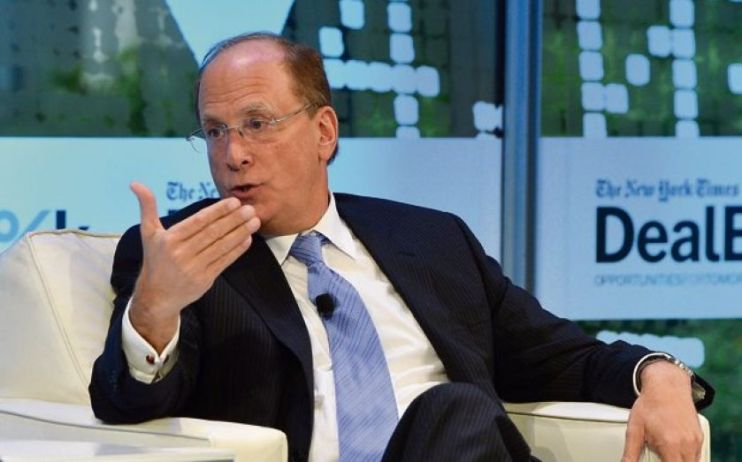BlackRock boss praises private sector for waging ‘economic war’ on Russia

The boss of the world’s biggest asset manager BlackRock said Russia’s invasion of Ukraine will spell the end of globalisation as we know it, as he praised the private sector for waging “economic war” on Russia.
Larry Fink said today that the war had catalysed capital markets, financial institutions and companies to “go beyond” imposed sanctions and join governments in shutting out Russia from the financial system.
“The Russian invasion of Ukraine has put an end to the globalization we have experienced over the last three decades,” he said.
“Russia has been essentially cut off from global capital markets, demonstrating the commitment of major companies to operate consistent with core values.
“This ‘economic war’ shows what we can achieve when companies, supported by their stakeholders, come together in the face of violence and aggression.”
Fink said that BlackRock, which manages over $10tn in assets for its clients, has never had significant holdings in Russia and had pivoted away from its dealings with the country.
The size of the BlackRock’s portfolio saw it weather a $17bn hit from the invasion however, after shuttered markets and western sanctions caused the value of its Russian assets to plunge.
Fink also predicted the war would push countries to reassess currency dependencies, and said that BlackRock was studying digital currencies and stablecoins due to increased client interest.
“A global digital payment system, thoughtfully designed, can enhance the settlement of international transactions while reducing the risk of money laundering and corruption,” he said.
The invasion has sent shockwaves across the global energy system as Western nations scramble to sever ties with Russian commodities, and Fink predicted this would accelerate a shift to green energy in the longer term.
“Longer-term, I believe that recent events will actually accelerate the shift toward greener sources of energy in many parts of the world,” he said.
“We’ve already seen European policy makers promoting investment in renewables as an important component of energy security.”
He pointed to Germany’s increasing its target to reach 100 per cent clean power by 2035, 15 years ahead of its previous pre-war target.